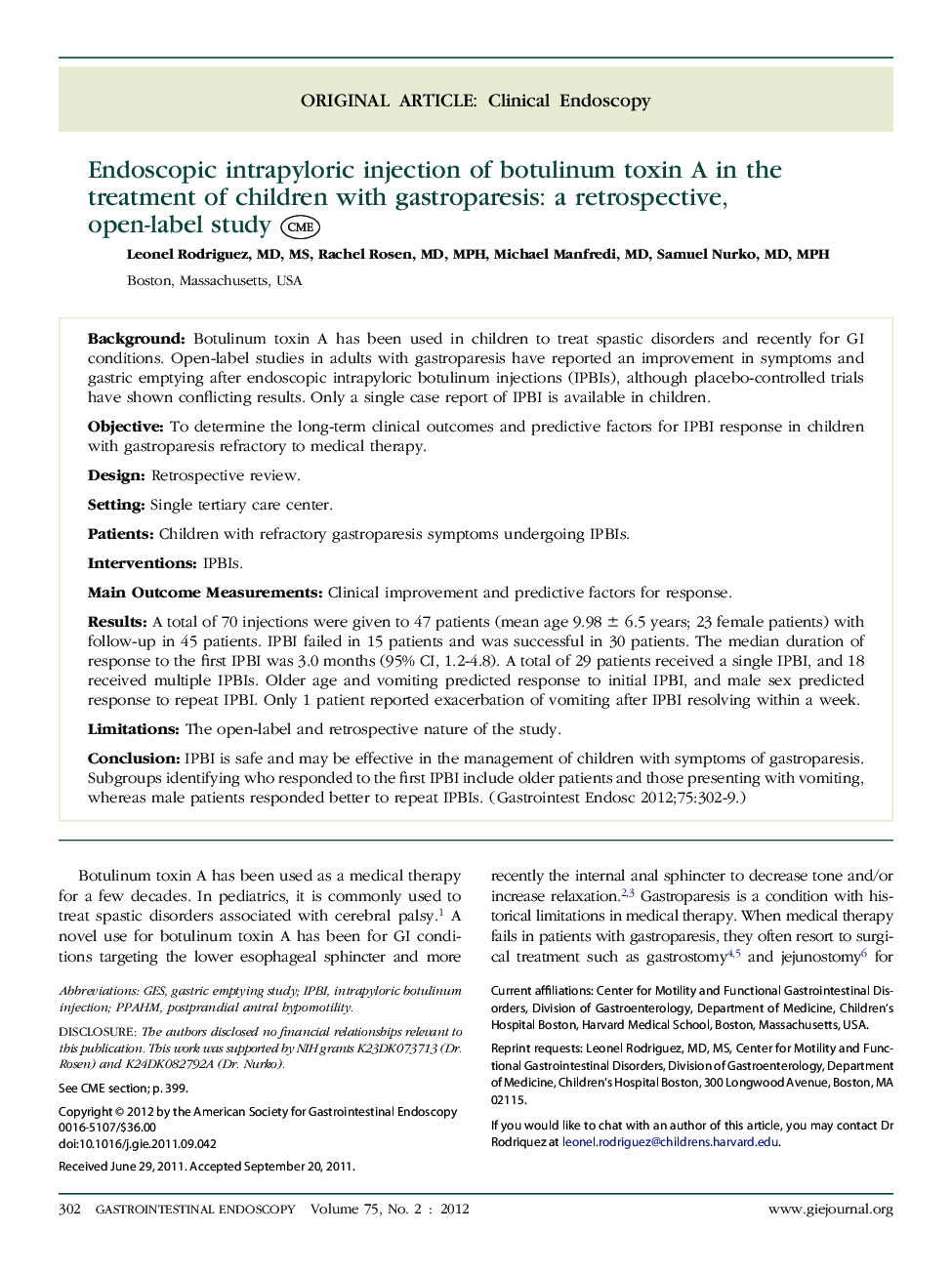| Article ID | Journal | Published Year | Pages | File Type |
|---|---|---|---|---|
| 3304608 | Gastrointestinal Endoscopy | 2012 | 8 Pages |
BackgroundBotulinum toxin A has been used in children to treat spastic disorders and recently for GI conditions. Open-label studies in adults with gastroparesis have reported an improvement in symptoms and gastric emptying after endoscopic intrapyloric botulinum injections (IPBIs), although placebo-controlled trials have shown conflicting results. Only a single case report of IPBI is available in children.ObjectiveTo determine the long-term clinical outcomes and predictive factors for IPBI response in children with gastroparesis refractory to medical therapy.DesignRetrospective review.SettingSingle tertiary care center.PatientsChildren with refractory gastroparesis symptoms undergoing IPBIs.InterventionsIPBIs.Main Outcome MeasurementsClinical improvement and predictive factors for response.ResultsA total of 70 injections were given to 47 patients (mean age 9.98 ± 6.5 years; 23 female patients) with follow-up in 45 patients. IPBI failed in 15 patients and was successful in 30 patients. The median duration of response to the first IPBI was 3.0 months (95% CI, 1.2-4.8). A total of 29 patients received a single IPBI, and 18 received multiple IPBIs. Older age and vomiting predicted response to initial IPBI, and male sex predicted response to repeat IPBI. Only 1 patient reported exacerbation of vomiting after IPBI resolving within a week.LimitationsThe open-label and retrospective nature of the study.ConclusionIPBI is safe and may be effective in the management of children with symptoms of gastroparesis. Subgroups identifying who responded to the first IPBI include older patients and those presenting with vomiting, whereas male patients responded better to repeat IPBIs.
